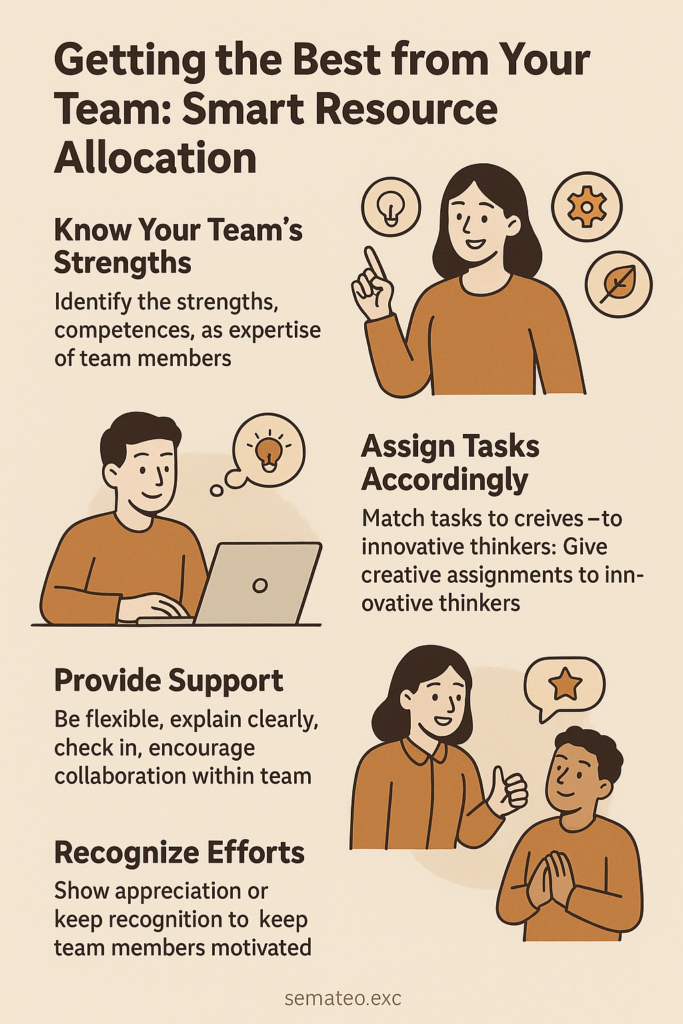Getting the Best from Your Team: Smart Resource Allocation
A great manager doesn’t just hand out tasks—they play to their team’s strengths. Think of it like running a football team. You wouldn’t put your best striker in goal, or your fastest runner on the bench. The same logic applies in the workplace: success comes from knowing your people and using their talents wisely.
Start by getting to know what each team member does best. This isn’t just about their job title or qualifications—it’s about what lights them up. One person might be great at solving problems under pressure, while another has a real eye for detail. Perhaps Sarah is fantastic at communicating with clients, while Raj thrives behind the scenes, sorting data and spotting patterns others miss.
Once you understand these strengths, match them to the right tasks. If there’s a tight deadline, give it to the person who keeps calm and delivers under pressure. If a project needs creativity, choose the team member who always brings fresh ideas. For example, let’s say you’re launching a new product. You might ask Lisa, who’s brilliant with visuals, to handle the branding, while Tom, your most organised thinker, manages the timeline and logistics.
Sometimes you’ll have to juggle resources based on availability and workload. Be flexible but clear—make sure people know why you’re asking them to do something. If you’re asking someone to stretch outside their comfort zone, give support and explain how it helps them grow. For instance, if James has never led a meeting but wants to build confidence, give him a smaller one to lead and offer tips beforehand.
Don’t forget to check in. Ask how things are going and be ready to adjust if someone’s struggling. This isn’t micromanaging—it’s being aware and supportive. Good managers also encourage collaboration. If Maria is great at writing but struggles with tech, pair her with someone like Alex who loves the technical side of things. Everyone benefits.
Finally, recognise people’s efforts. When team members see that their strengths are being used and appreciated, they stay motivated and engaged. That’s when the magic happens—work gets done faster, better, and with more energy.
In short: know your team, match the right people to the right tasks, support them to grow, and say thank you. It’s not about squeezing every drop of effort—it’s about building a team that works well together because everyone is doing what they do best.

This post relates to the Unit 301/ML11 Manage Team Performance and assists completion of the criteria below:
301/ML11 2.2 Allocate work on the basis of the strengths, competences and expertise of team members